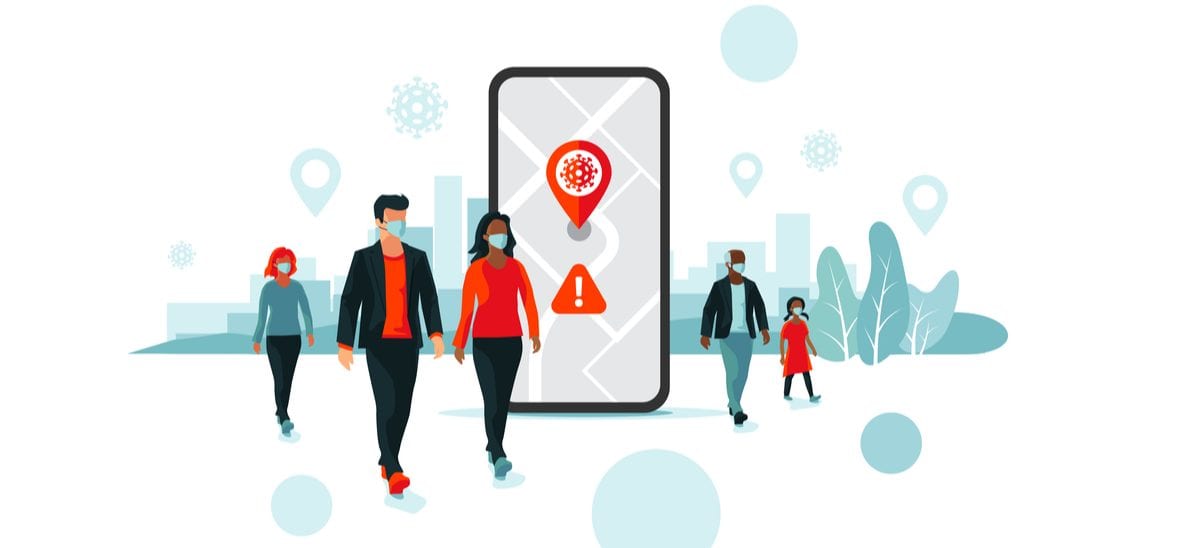How smartphone data can aid in the fight for early Covid-19 detection

Or Lenchner, CEO of Luminati Networks writes about how smartphone data is aiding the battle against the coronavirus pandemic.
Smartphones and smart devices have already played an important role since the start of the Covid-19 crisis. Researchers and governments have leveraged these in a wide and creative variety of ways to assess possible Covid-19 infection: tracing people’s movements (to see who they have come in contact with), measuring blood pressure, or even helping doctors identify possible Covid-19 patients with voice recognition. Among the many technologies emerging to combat the pandemic, smartphone or other smart device-based solutions are continuing to attract attention from every sector.
Researchers are continuing to find new ways to leverage the devices that almost every consumer has in their pocket. The Sprint Covid-19 task force, led by the Assuta Hospital in Ashdod, Israel, in collaboration with AWS Israel and Rafael Technology, is one such initiative looking to unlock the potential of existing smartphone technology used by millions of people across the world as a means of identifying potential early warning signs.
Looking to blood oxygen for potential indicators
According to Sprint Covid-19, research from China and Italy indicates that 30%-50% of their Covid-19 infected population suffered from silent hypoxia. This means having a low level of oxygen in blood, without any obvious shortness of breath or other visible symptoms, which translates to a higher chance of them infecting other people without even knowing it.
Sprint Covid-19 found that many commonly owned smartphones or smartwatch devices have a built-in sensor, known as a SpO2 sensor, that can enable testing your own blood oxygen levels independently and easily which could be a key first step in identifying the virus early. Based on those results, the team has developed a heuristic test that can be carried out on smartphones and smartwatches to identify asymptomatic, pre-symptomatic, and mild cases which would otherwise go undetected. However, the team faced the challenge of identifying which of the possible 8000 different device models were able to deploy this test.
The key role of ethical smart device and smartphone data collection
Luminati Networks, a market leader in the data collection domain and is generally used by retailers and ecommerce companies to gather data insights, joined the task force to identify all available smart devices that could carry out this test.
Read More: Finney: Check out the world’s first Blockchain smartphone
The team of engineers knew time was of the essence, so they used data collection automation to sift through the mass amount of publicly available online data to identify all suitable smart devices. They quickly found out that smart devices carrying the SpO2 sensor – included many older smartphone models could take care of this test. Moving forward they were able to assess 8000 models of different smart devices. In just under 24 hours, the team found out that over 110 smartphone models and 165 models of smartwatches and smart bands have this sensor to test blood oxygen levels.
How the data insights are being applied
Luminati’s data collection automation platform was able to calculate that 17% of the global population owns smart devices that carry the SpO2 sensor. This number includes nearly 19% of U.S. smartphone owners, 18% of U.K. smartphone owners, and up to 12% of Italian users – these numbers have exceeded the medical teams’ expectation.
The data we collected is enabling other possible solutions. Sprint Covid-19 is now using the data about compatible smartphones to help doctors conduct remote diagnostics, including measuring for temperature, pulse and saturation. In addition to this, the data is helping researchers build an algorithm-based solution aimed at identifying the severity of cases. These solutions can allow doctors to direct patients to hospitals or home quarantine without the need for testing them personally. Doctors can also look into the patient’s history and additional vital symptoms. Once the doctor goes through all relevant data, the algorithm will provide a score which can guide the doctor to the accurate patient treatment.
How data collection can advance medical research
Data plays a key role in the decision-making process of every modern organization, and medical research is no exception. Based on developments so far, it’s certain that having the right data is essential in the fight against Covid-19. Unlocking the potential of smartphones and using the wide variety of data they offer, beyond just our locations, is and will become even more important for future medical research.
When consumers and researchers are fully aware of the devices that can collect valuable healthcare markers, they will be able to accelerate any research, and identify and explore more opportunities to develop suitable solutions. It’s likely that the medical community will continue to make use of smartphone-based data to fuel new innovations and help stop the current pandemic.
